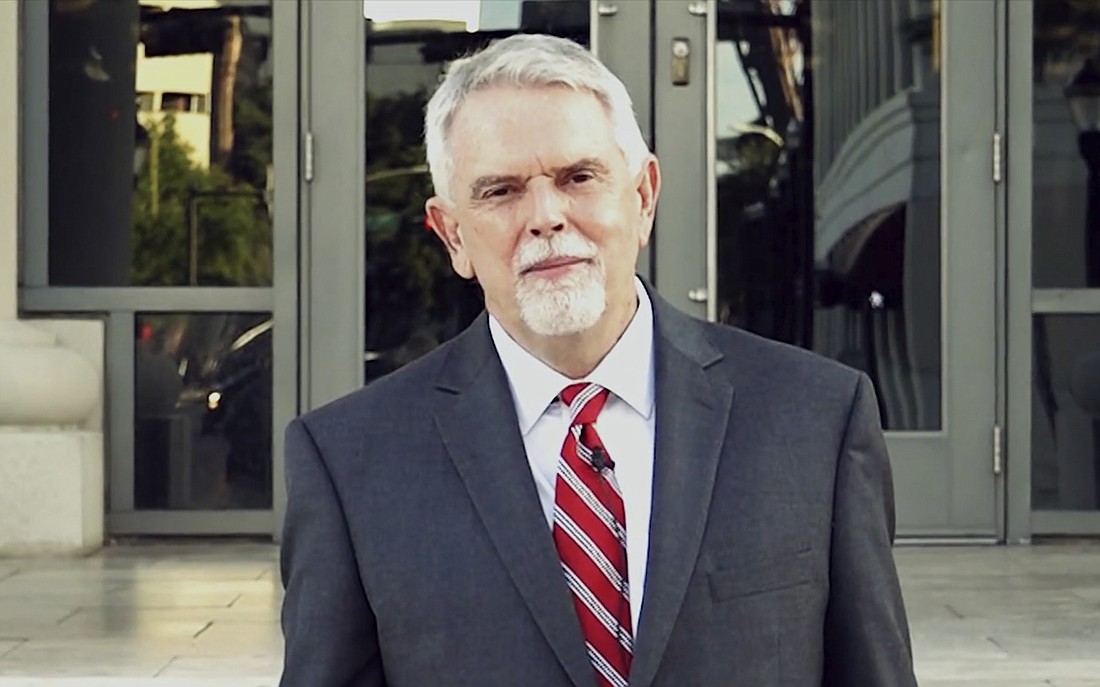
For the first time since March 16, people will go to the Duval County Courthouse on Oct. 5 for possible selection as a juror.
The state’s courthouses have been closed for more than six months because of the COVID-19 pandemic. Court proceedings were postponed indefinitely or transitioned to remote only, including hearings for incarcerated defendants and jury trials.
March 16 is described by 4th Circuit Chief Judge Mark Mahon as “when the world fell off the edge” because overnight, everything changed and has remained as such longer than anticipated.
“It’s hard to believe. It seems like one long, miserable week,” Mahon said Oct. 2.
As the court begins its return to business as usual, summonses were sent to 150 prospective jurors, along with an addendum that addresses concerns people may have about the novel coronavirus, said Brian Corrigan, spokesman for the Duval County Clerk of Courts.
Jurors may be excused if they:
• Have had symptoms in the past 14 days (excluding those due to a known medical condition) that could be related to COVID-19, including cough, sore throat, shortness of breath or difficulty breathing, chills, muscle pain or body aches, new loss of taste or smell, congestion or runny nose, nausea or vomiting or diarrhea.
• Are awaiting the results of a test to determine if they have COVID-19 or if they are under instructions to self-isolate or quarantine due to COVID-19.
• Have had close contact within 14 days with someone with a COVID-19 diagnosis or who is awaiting test results for the coronavirus based on symptoms or suspected exposure
• Care for a child or relative whose regular care provider is closed or unavailable for reasons related to COVID-19.
• Are receiving leave pursuant to the Families First Coronavirus Response Act.
In addition, summoned prospective jurors may request to have their service postponed for up to six months if they have recently returned to work after being unemployed due to COVID-19 or have suffered a financial or personal loss due to COVID-19 that makes it a hardship to perform jury service.
Other elements of jury service also have changed, Corrigan said.
Before the pandemic, about 1,200 people were summoned each Monday for multiple civil and criminal trials.
Those summoned for the Oct. 5 jury pool may be selected for a single 21-member grand jury, Mahon said.
Prospective jurors used to enter the building through the main entrance and then selected one of several security screening lanes.
Beginning Oct. 5, they will use a side entrance, have their temperature checked and pass through a security lane reserved for summoned jurors.
They used to gather in the 500-seat jury assembly room for initial screening and instructions. That’s been scaled back to 63 chairs, limited by the Centers for Disease Control and Prevention social distancing standards.
Beginning Oct. 26, two groups of 150 will be summoned each week, one on Monday and one on Tuesday, each to possibly be seated for a felony criminal trial.
“That will be the model for the time being,” Corrigan said.
“This lets us test our capability to pick a jury. It’s a work in progress. We want to put people’s minds at ease and we’re following all of the guidelines,” Mahon said.
Click here to view a presentation for prospective jurors provided by the court.